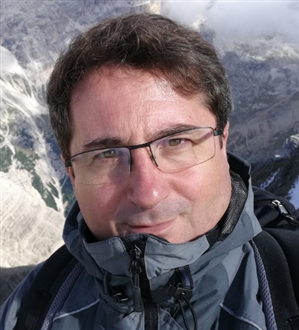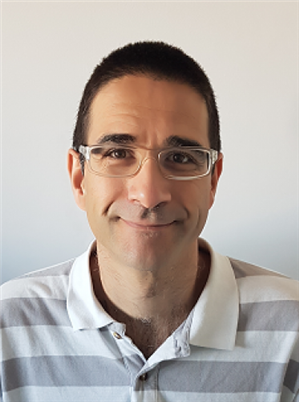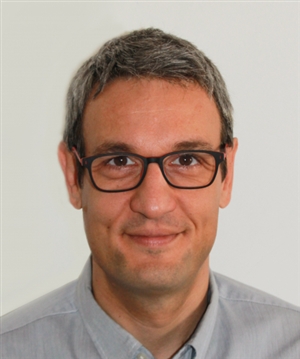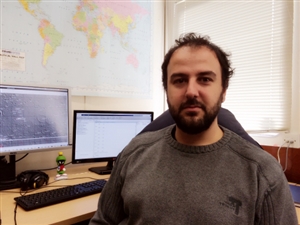Registration Link
We're excited to be joined by three world class speakers for Part 1:
 Prof. Andrea Cavallaro - Queen Mary University London
Prof. Andrea Cavallaro - Queen Mary University LondonAndrea Cavallaro is Professor of Multimedia Signal Processing and the founding Director of the Centre for Intelligent Sensing at Queen Mary University of London, UK. He is Fellow of the International Association for Pattern Recognition (IAPR) and Turing Fellow at the Alan Turing Institute, the UK National Institute for Data Science and Artificial Intelligence. He is Editor-in-Chief of Signal Processing: Image Communication; Chair of the IEEE Image, Video, and Multidimensional Signal Processing Technical Committee; an IEEE Signal Processing Society Distinguished Lecturer; an elected member of the IEEE Video Signal Processing and Communication Technical Committee; and a Senior Area Editor for the IEEE Transactions on Image Processing.
Prof. Cavallaro received his Ph.D. in Electrical Engineering from the Swiss Federal Institute of Technology (EPFL), Lausanne, in 2002. He was a Research Fellow with British Telecommunications (BT) in 2004/2005 and was awarded the Royal Academy of Engineering Teaching Prize in 2007; three student paper awards on target tracking and perceptually sensitive coding at IEEE ICASSP in 2005, 2007 and 2009; and the best paper award at IEEE AVSS 2009. He is a past Area Editor for the IEEE Signal Processing Magazine (2012-2014) and past Associate Editor for the IEEE Transactions on Image Processing (2011-2015), IEEE Transactions on Signal Processing (2009-2011), IEEE Transactions on Multimedia (2009-2010), IEEE Signal Processing Magazine (2008-2011) and IEEE Multimedia. He is a past elected member of the IEEE Multimedia Signal Processing Technical Committee and past chair of the Awards committee of the IEEE Signal Processing Society, Image, Video, and Multidimensional Signal Processing Technical Committee. Prof. Cavallaro has published over 280 journal and conference papers, one monograph on Video tracking (2011, Wiley) and three edited books: Multi-camera networks (2009, Elsevier); Analysis, retrieval and delivery of multimedia content (2012, Springer); and Intelligent multimedia surveillance (2013, Springer).
 Dr. Jesus Garcia - Universidad Carlos III in Madrid
Dr. Jesus Garcia - Universidad Carlos III in MadridJesus Garcia is Professor at the Universidad Carlos III de Madrid, Computer Science Department. His main research interests are computational intelligence, sensor and information fusion, machine vision, traffic management systems and autonomous vehicles. Within these areas, including theoretical and applied aspects, he has co-authored more than 10 book chapters, 60 journal papers and 180 conference papers.
He has served on several advisory and programming committees in organizations IEEE, ISIF and NATO. He has been chair of the Spanish IEEEE Chapter on Aerospace and Electronic Systems (2013-2018), appointed Spanish member of several NATO-STO Research Groups (since 2011) and co-organizer of ISIF International Conference on Information Fusion in 2014 and 2019.
Talk Details:
UAV platforms as advanced information sources: machine vision, sensor fusion and mission management
Applications and services based on Unmanned Aerial Vehicles are no more a remote possibility, but a short-term and broad-scope economic and social opportunity. Emergency-response coordination, industrial inspection, public or private urban infrastructures monitoring or support to intelligent transportation systems are some of the many domains of interest. In all these applications, on the one hand, it is essential to coordinate the efficient and safe operation of UAV fleets. On the other hand, it is necessary to enable the accurate acquisition and correct interpretation (on-board or in ground stations) of drone-retrieved information, in order to guarantee the success of the missions. This second aspect, which considers the integration and exploitation of the mission information in the framework of the applications, becomes critical to put new applications and business modes into operation. The talk will review some of the open technological challenges in the area:
1) New definitions of trajectory and airspace: planning, automated and safe coordination and operation of autonomous drone fleets, navigation and communication integrity.
2) Monitoring, interpretation and visualization of big georeferred data volumes and image flows for informed decision making, sensor management and fusion.
3) Integration of enabling technologies to provide support to UTM concepts including, among others, artificial intelligence, sensor fusion and machine vision.
 Dr. Anastasios Dimou - Centre of Research and Technology Hellas
Dr. Anastasios Dimou - Centre of Research and Technology HellasDr Anastasios Dimou is a Researcher in the Visual Computing Lab (VCL) at the Information Technologies Institute (ITI) of the Centre for Research and Technology Hellas (CERTH). He received the Diploma in Electrical and Computer Engineering from Aristotle University of Thessaloniki (AUTH), Greece, the Professional Doctorate in Engineering (PDEng) in Information and Communication Technology from the Technical University of Eindhoven (TU/e), the Netherlands, and the PhD degree on image processing for surveillance applications from the Universidad Politécnica de Madrid (UPM), Spain. He has significant work on multiple research domains covering computer vision, safety and security applications, remote sensing, video coding and bioinformatics. The legal, ethical and privacy extensions of applications are of special interest to him. His work has led to the co-authoring of more than 40 publications in refereed international journals and conferences, including 8 journals, 32 conferences and 2 book chapters. He has been involved in more than 12 EU research projects undertaking significant roles. Currently, he is coordinating H2020 project FASTER (Disaster Resilient Societies) and technically coordinating H2020 GRACE and ANITA. He is also guest editor on an MDPI Sensors Special Issue on UAV detection, classification and tracking.
Talk Details:
Context-sensitive UAV mapping for improved Situational Awareness
Surveying and mapping unknown environments is a time-consuming, difficult and often dangerous task. The use of UAVs has advanced our capabilities but they still lack the operational intelligence to perform autonomously such tasks taking into account the environmental and target context. Modern AI for computer vision is emerging as the enabling technology to solve many of the challenges involved. In this talk, challenges, methodologies, and future work on the topic will be discussed stepping on a disaster scenario where UAVs are used to achieve better situational awareness for search and rescue operations.
 The moderator and organise of the event is Dr Panagiotis Sidiropoulos. He is the Head of AI and Head of Automation in Hummingbird Technologies, while he is also holding an honorary lectureship in University College London. His main research interests are in computer vision, machine learning and remote sensing, areas in which he has been active both from an academic and industry viewpoint. He has received more than 1£ million of funding and has been the technical lead in projects of total value of more than 5£ million from InnovateUK, ESA, STFC, etc. as well as private companies.
The moderator and organise of the event is Dr Panagiotis Sidiropoulos. He is the Head of AI and Head of Automation in Hummingbird Technologies, while he is also holding an honorary lectureship in University College London. His main research interests are in computer vision, machine learning and remote sensing, areas in which he has been active both from an academic and industry viewpoint. He has received more than 1£ million of funding and has been the technical lead in projects of total value of more than 5£ million from InnovateUK, ESA, STFC, etc. as well as private companies. Register to to secure your place here. If you can't make it on the day, register and you will be sent the on-demand link shortly after the webinar.
